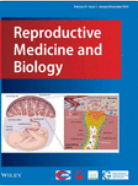Progesterone resistance in endometriosis: A pathophysiological perspective and potential treatment alternatives
Hsiao‐Chien Tang, Ting‐Chien Lin, Meng‐Hsing Wu, and Shaw‐Jenq Tsai
Abstract
Background
Endometriosis is a common gynecological disease affecting women of reproductive age. Patients with endometriosis frequently experience severe chronic pain and have higher chances to experience infertility. Progesterone resistance is a major problem that develops during the medical treatment of endometriosis, which often leads to treatment failure of hormonal therapies. Previous studies indicated that the dysregulation of progesterone receptors (PR) is the primary factor leading to progesterone resistance in endometriosis.
Methods
This review article systematically reviewed and summarized findings extracted from previously published papers available on PubMed, encompassing both experimental studies and clinical trials.
Main findings
Various determinants influencing PR expression in endometriosis have been identified, including the environmental toxins, microRNAs, cell signaling pathways, genetic mutations, and the pro‐inflammatory cytokines. The selective estrogen/progesterone receptor modulators have emerged as novel therapeutic approaches for treating endometriosis, offering potential improvements in overcoming progesterone resistance.
Conclusion
Concerns and limitations persist despite the newly developed drugs. Therefore, studies on unraveling new therapeutic targets based on the molecular mechanisms of progesterone resistance is warranted for the development potential alternatives to overcome hormonal treatment failure in endometriosis.
Keywords: cell signaling, endometriosis, hormonal therapy, microRNA, progesterone resistance
Reprod Med Biol. 2024 Jun 7;23(1):e12588. doi: 10.1002/rmb2.12588. PMID: 38854774; PMCID: PMC11157498.




